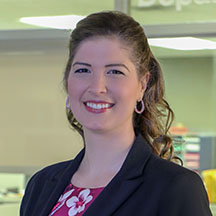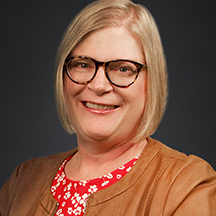New to Public Health-Cohort 4: Session 7-Maternal, Child, and Family Health
Overview
The New to Public Health Residency Program is an innovative development program designed to build confidence and competency for professionals who are new to public health.
The program is built upon the Foundational Public Health Services Model and develops enhanced knowledge and skills within the foundational areas and capabilities that are essential to public health practice.
The residency program includes an evidence-based practice project, peer networking, mentoring, facilitated reflection and journaling, simulation, and case studies to support the new resident as they transition to practice; while inspiring collaborative, interdisciplinary relationships to promote and protect health at a population level.
Statement of Need and Purpose
The residency program is designed to provide new public health professionals the foundational capabilities that are essential to public health practice. Overarching residency curriculum focuses on leadership, professional development, role-specific formation and competency. A residency program bridges the workforce by integrating the knowledge of experienced public health professionals and the fresh ideas of new staff to positively affect population health.
Integration of public health professionals from across jurisdictions allows the new public health professional to understand how diversity in the workforce strengthens essential services across city and county lines, and allows for enhanced networking and future collaboration.
Residency programs supplement state and local orientation programs and build upon department-specific policy, procedures, and tasks, to allow the resident to see a fuller picture of the field of public health.
This contemporary program utilizes a comprehensive practice model that supplements existing knowledge of staff and supports the synthesis of new ideas. The program promotes standardized tools for the participant to customize based on their individual practice.
Target Audience
This residency program is designed to meet the needs of nurses, social workers, sanitarians, health educators, and other public health professionals that are new to their roles.
Elements of Competence
This continuing education (CE) activity is designed to improve learner competence, and focuses on the American Board of Medical Specialties’ areas of interpersonal communication skills, professionalism and systems-based practice, the Institute of Medicine area of employing evidence-based practice, applying quality improvement, and utilizing information, and the Interprofessional and Nursing areas of values/ethics, roles/responsibilities and interprofessional communication.
Global Learning Objectives
By the end of the residency program, the new public health professional as a member of the interprofessional healthcare team will:
- Apply learned concepts from the Foundational Public Health Services’ model to their public health professional practice.
- Increase knowledge, skills, and confidence for competent public health practice.
- Access tools and resources applicable to public health practice.
- Apply health equity and social justice concepts to public health practice.
- Demonstrate enhanced cultural competency knowledge and skills in their individual practice.
- Research, plan, and present a quality improvement or evidence-based practice project within their local health department or community.
Session Learning Objectives
By the end of this session, the new public health professional as a member of the interprofessional healthcare team will:
- Detail how public health provides timely, statewide and locally-relevant, accurate information to the health care system and community on emerging and ongoing maternal child health trends
- Identify local maternal and child health community partners and their capacities
- Demonstrate life course expertise and an understanding of health disparities to understand how to develop a prioritized prevention plan and seek funding for high priority initiatives
- Describe, disseminate, and promote emerging and evidence-based information about early interventions in the prenatal and early childhood period that promote lifelong health and positive social-emotional development
- Explain how newborn screening is assured as mandated by a state or local governing body including wraparound services, report back, follow up, and service engagement activities
- Recognize how to coordinate and integrate categorically funded maternal, child, and family health programs and services
Successful Completion
Residents will view lectures, panel discussions, participate in cased-based and small-group discussions, participation in simulation and skill-based training, and participate in simulation, skill-based training, and gaming activities over a 12 month period of time.
The residency program also includes an evidence-based practice project, peer networking, mentoring, facilitated reflection, journaling to support the new resident as they transition to practice while inspiring collaborative, interdisciplinary relationships to promote and protect health at a population level.
SESSION SECTIONS |
|---|
| Session 7: Pre-Test |
| Overview of Maternal, Child, and Family Health |
| Maternal Child Health Assurance |
| WIC |
| Scavenger Hunt |
| Trauma Informed Care |
| Discussion: Strategies to Prevent ACEs |
| Case Study |
| Life Course Perspective |
| Reproductive Justice |
| Childhood Vaccines |
| Vaccine Hesitancy |
| Conspiracy Theories and Public Health |
| Reflection |
| Discussion Post Check In |
| Session 7: Post-Test |
| Session 7: Evaluation |
| References |
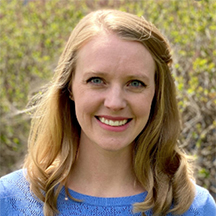 | Julianna ManskeNew to Public Health Residency Program Facilitator Julianna Manske is a co-founder and facilitator of the New to Public Health Residency Program and employed with the University of Wisconsin-Madison School of Nursing. Julianna spearheaded the 2016 workgroup that developed and implemented the Southeastern Wisconsin Public Health Nurse Residency Program. This program ran from 2017-2020 and served as the foundation to build the New to Public Health Residency Program. Julianna serves as a co-chair on the Association of Public Health Nurses’ Education and Professional Development subcommittee. She has a Master of Science in Nursing Education from Concorida University and a Bachelor of Science in Nursing from Carroll University. Julianna is passionate about workforce development and is grateful to work with an incredible team and public health partners from across the county to deliver the New to Public Health Residency Program to new public health professionals. |
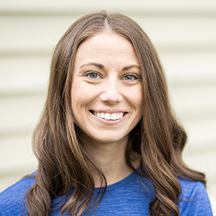 | Hannah HayesNew to Public Health Residency Program Facilitator and Project Manager Hannah Hayes is the New to Public Health project manager, facilitator, and co-developer of the New to Public Health Residency Program. In 2018 Hannah completed her Master of Public Health (MPH) at the University of Wisconsin-Madison. During this time, Hannah partnered with the Southeastern Wisconsin Public Health Nurse Residency Program, where she assisted in the co-development of a toolkit for the dissemination and implementation of the residency program, which served as the foundation for the New to Public Health Residency Program. Hannah is currently employed by the University of Wisconsin-Madison School of Nursing as the Project Manager of the New to Public Health Project. Hannah graduated with her Bachelor of Science in Nursing in 2016 and has experience in family practice & forensics, postpartum, and public health nursing in addition to serving as a public health clinical instructor. Hannah is passionate about social justice, empowering new professionals, and advancing the public health profession. |
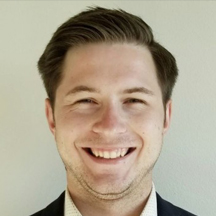 | Michael JaebMichael is a Doctor of Philosophy in Nursing student at the University of Wisconsin-Madison School of Nursing. Michael is building a program of research to improve health professional-patient communication to address shame and stigma encountered during health professional-patient interactions. The goal of this research is to develop and bolster trauma-informed communication tools and styles that support health professionals providing caring services for individuals, families, and communities experiencing shame and stigma. Michael serves as the co-chair of the Wisconsin Public Health Association Public Health Nursing section. He previously served on the Wisconsin Nurses Association Public Policy Council, COVID Response Work Plan Committee, and COVID Ethics subcommittee in which he advocated for the protection of the nursing workforce and correction of inequitable responses to public health crises. Michael also served at the Eau Claire City-County Health Department in implementing outreach efforts for WIC, NFP, and community action teams targeting mental health and healthy relationships. He led a food support program for individuals experiencing homelessness and food insecurity. Michael also has experience collaborating with Native American communities and UW-Eau Claire faculty to address poor outcomes related to pressure ulcers in older adults.
|
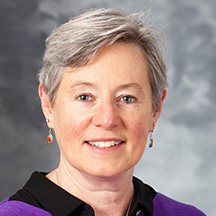 | Katie GillespieKate Gillespie is the Deputy Director of the UW Prevention Research Center. Previously, she worked as the Title V Director and Maternal and Child Health (MCH) Supervisor at the Wisconsin Department of Health Services, Division of Public Health, where she was responsible for the administrative oversight, implementation, and reporting for the federal Title V MCH Block Grant. While at the Department, she facilitated the integration of principles of health equity, engaging the community, and quality improvement science into a variety of public health programs designed to improve the health of women, infants and children. She was also instrumental in the development of statewide quality collaboratives that engage clinical and public health partners in population-level quality improvement initiatives. She received a Bachelor of Science in Nursing from Northern Illinois University and a Doctor of Nursing Practice in Community and Public Health from the University of Wisconsin-Milwaukee. |
| Laura ConklinI am a public health leader with fifteen years of experience in community health program planning, implementation, and improvement. I am currently the Director of Community Health Initiatives at the American Academy of Pediatrics (AAP), where I oversee programs and initiatives which seek to advance the health of all children, by connecting pediatricians with their communities to address the social determinants of health and advocate for policy change. Prior to joining the AAP, I was the Director and Health Officer of the Wauwatosa Health Department in Wisconsin. There, I created and maintained the health department’s budget, wrote for and monitored existing grants, worked with the City Council and community partners to increase the visibility of the department, implemented evidence-based solutions to address the community’s most pressing public health needs, and enforced all applicable state statutes and city ordinances. I also have extensive experience in community health assessment, planning, implementation, and evaluation. During my tenure, Wauwatosa obtained national accreditation, and as a result, I have experience in performance management, quality improvement, and workforce development. Prior to Wauwatosa, I worked in a variety of positions advancing public/population health in the academic, public, and private sectors. |
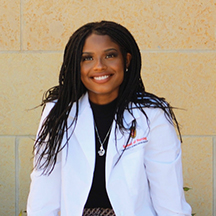 | Samira BartiSamira is a second-year nursing student pursuing certificates in Global Health and French at the University of Wisconsin-Madison. Outside of class, she works as the Intern for The Ladder project where she engages in discussions regarding health equity. Samira is also the Equity, Diversity, and Inclusion representative for the UW-Madison School of Nursing and co-leads an initiative to improve clinical inclusion of darker skin tones. She currently is working as a student nurse intern at Northwestern's postpartum floor. Samira has a strong commitment to social justice and aspires to work as Midwife/DNP to eradicate the rising black maternal mortality rates. |
 | Zakiyyah SorensonZakiyyah Sorensen is the CORE Outreach Lead. In this role, Zakiyyah directs the strategic planning and vision for CORE outreach and engagement, and identifies and maintains networks of interested parties from large organizational stakeholders to individuals at the community level. Through those relationships, she facilitates the identification of research priorities, and the development, translation, and dissemination of research findings in support of community needs in Wisconsin. Zakiyyah is a Registered Nurse with a Bachelor of Science Degree from the University of Wisconsin-Madison. Zakiyyah specialized in Sexual and Reproductive Health as a Public Health Nurse with the Madison and Dane County Public Health Department. She co-created a sexual and reproductive health curriculum centered on principles of reproductive justice, presented most recently at the National Sexual Health Conference, Planned Parenthood of Wisconsin’s Safe Healthy Strong Conference, HCET, WFPRHA and Providers and Teens Communicating for Health. Zakiyyah was born and raised on Long Island, New York, and has lived in Wisconsin for the past 15 years. You can normally find her behind a camera, traveling, or reading in her hammock trying to enjoy Wisconsin’s ridiculously short summers. |
| Cheryl DaviesCheryl Davies, RD, CD, CLS is the WIC Director for the City of West Allis WIC Program in West Allis Wisconsin. In this role, she manages a dynamic team of 12 staff who provide WIC services to over 3900 participants monthly across three sites. Cheryl works with other public health and community partners to address health disparities in her community including health equity, healthy lifestyles, maternal child health and breastfeeding. She is a Registered Dietitian with the Academy of Nutrition and Dietetics, a Certified Dietitian with the State of Wisconsin and a Certified Lactation Specialist. In addition to her undergraduate degree from the University of Wisconsin Madison, she holds a Certificate in Core Public Health from the University of North Carolina-Chapel Hill and has completed graduate work in Community Health Education at Carroll University. |
 | Theresa SeidlTheresa Seidl, RDN, CD, CLS, is a Community Health Nutritionist for the City of West Allis WIC Program in West Allis, Wisconsin. Theresa has worked with diverse populations in WIC and Public Health for over eight years. She is passionate about helping families learn about nutrition and breastfeeding. Theresa is a Registered Dietitian Nutritionist, Certified Dietitian in Wisconsin, and a Certified Lactation Specialist. She holds a Bachelor of Science degree in Dietetics from Mount Mary University in Milwaukee, Wisconsin. |
| Ajay SethiAjay Sethi is Faculty Director of the Master of Public Health Program at the University of Wisconsin-Madison where he is also Associate Professor in the Department of Population of Health Sciences. He is an infectious disease epidemiologist and studies HIV, healthcare associated infections, COVID-19, and the human microbiome. |
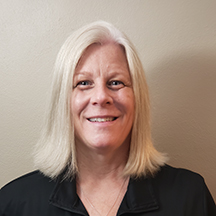 | Lisa Simpson KlindtLisa Klindt Simpson, an Injury Prevention Program Manager at Children’s Wisconsin, has been part of the unintentional injury prevention team since 2003. In her role, she serves as the Safe Kids Southeast Wisconsin Coalition Coordinator, leading an active coalition in many unintentional injury prevention programs to include Winners Wear Helmets, Delivering Fire Prevention – Neighborhood Sweeps, home safety, child passenger safety, pedestrian education and is often a go to for media and speaking request. Lisa first presented to the Public Health Nurse Residency program in Southeast Wisconsin in 2017, as the program was initiated. This presentation was an opportunity to share local injury prevention data and resources. |
PLANNING COMMITTEE MEMBERS
| Hannah Hayes, MPH, RN University of Wisconsin-Madison, School of Nursing | Julianna Manske, MSN, RN, OCN University of Wisconsin-Madison, School of Nursing | Susan Zahner, DrPH, RN, FAAN University of Wisconsin-Madison, School of Nursing |
| Deborah Heim, PhD, MS, MN, BSN Public Health Nurse Consultant (PHNC) Wisconsin Division of Public Health Office of Policy and Practice Alignment (OPPA) for the SE region | Marta McMillion, MPH, MS, CHES Association of State and Territorial Health Officials (ASTHO) | |
| Ellen Henry, BS, CHESN City of Franklin Health Department | Ajay Sethi, PhD, MHS UW-Madison School of Medicine and Public Health |
CONTENT REVIEWERS
| Angela Acker University of Wisconsin-Madison, Populations Health Institute | Michael Jaeb University of Wisconsin-Madison, School of Public Health |
| Paula Bizot University of Wisconsin-Madison, School of Nursing | Abra Vigna University of Wisconsin-Madison, Populations Health Institute |
Acknowledgements
- Paula Bizot
- Susan Zahner
- Michael Jaeb
POLICY ON DISCLOSURE
It is the policy of the University of Wisconsin–Madison Interprofessional Continuing Education Partnership (ICEP) to identify, mitigate and disclose all relevant financial relationships with ineligible companies* held by the speakers/presenters, authors, planners, and other persons who may influence content of this accredited continuing education (CE). In addition, speakers, presenters and authors must disclose any planned discussion of unlabeled/unapproved uses of drugs or devices during their presentation.
For this accredited continuing education activity all relevant financial relationships have been mitigated and detailed disclosures are listed below.
*Ineligible companies are those whose primary business is producing, marketing, selling, re-selling, or distributing healthcare products used by or on, patients.
The ACCME does not consider providers of clinical services directly to patients to be ineligible companies.
The University of Wisconsin provides equal opportunities in employment and programming, including Title IX requirements. The University of Wisconsin fully complies with the legal requirements of the ADA and the rules and regulations thereof. If any participant in this educational activity is in need of accommodations, please contact info@icep.wisc.edu.
Cohort-4 Disclosures
Accreditation Statement
 | In support of improving patient care, the University of Wisconsin–Madison ICEP is jointly accredited by the Accreditation Council for Continuing Medical Education (ACCME), the Accreditation Council for Pharmacy Education (ACPE), and the American Nurses Credentialing Center (ANCC) to provide continuing education for the healthcare team. |
CREDIT DESIGNATION STATEMENTS
AMERICAN NURSES CREDENTIALING CENTER (ANCC)
The University of Wisconsin–Madison ICEP designates this Internet Enduring Material activity for a maximum of 8.25 ANCC contact hours.
CONTINUING EDUCATION UNITS (CEUS)
The University of Wisconsin–Madison ICEP, as a member of the University Professional & Continuing Education Association (UPCEA), authorizes this program for .825 CEUs or 8.25hours
CERTIFIED HEALTH EDUCATION SPECIALISTS (CHES) AND/OR MASTER CERTIFIED HEALTH EDUCATION SPECIALISTS (MCHES)
Sponsored by University of Wisconsin–Madison ICEP, a designated provider of continuing education contact hours (CECH) in health education by the National Commission for Health Education Credentialing, Inc. This program is designated for Certified Health Education Specialists (CHES) and/or Master Certified Health Education Specialists (MCHES) to receive up to 8.25 total Category I continuing education contact hours. Maximum advanced-level CECH available are 1.50. Continuing Competency credits available are 8.25.
Total contact hours: 8.25
Entry-level contact hours: 6.75
Advanced-level contact hours: 1.50
Available Credit
- 8.25 ANCC Contact Hours
- 8.25 CECH Approved Credits
- 8.25 Entry-level Continuing Competency credits
- 1.50 Advanced-level credits
- 6.75 Entry-level credits
- 8.25 University of Wisconsin–Madison Continuing Education Hours

 Facebook
Facebook Twitter
Twitter LinkedIn
LinkedIn Forward
Forward